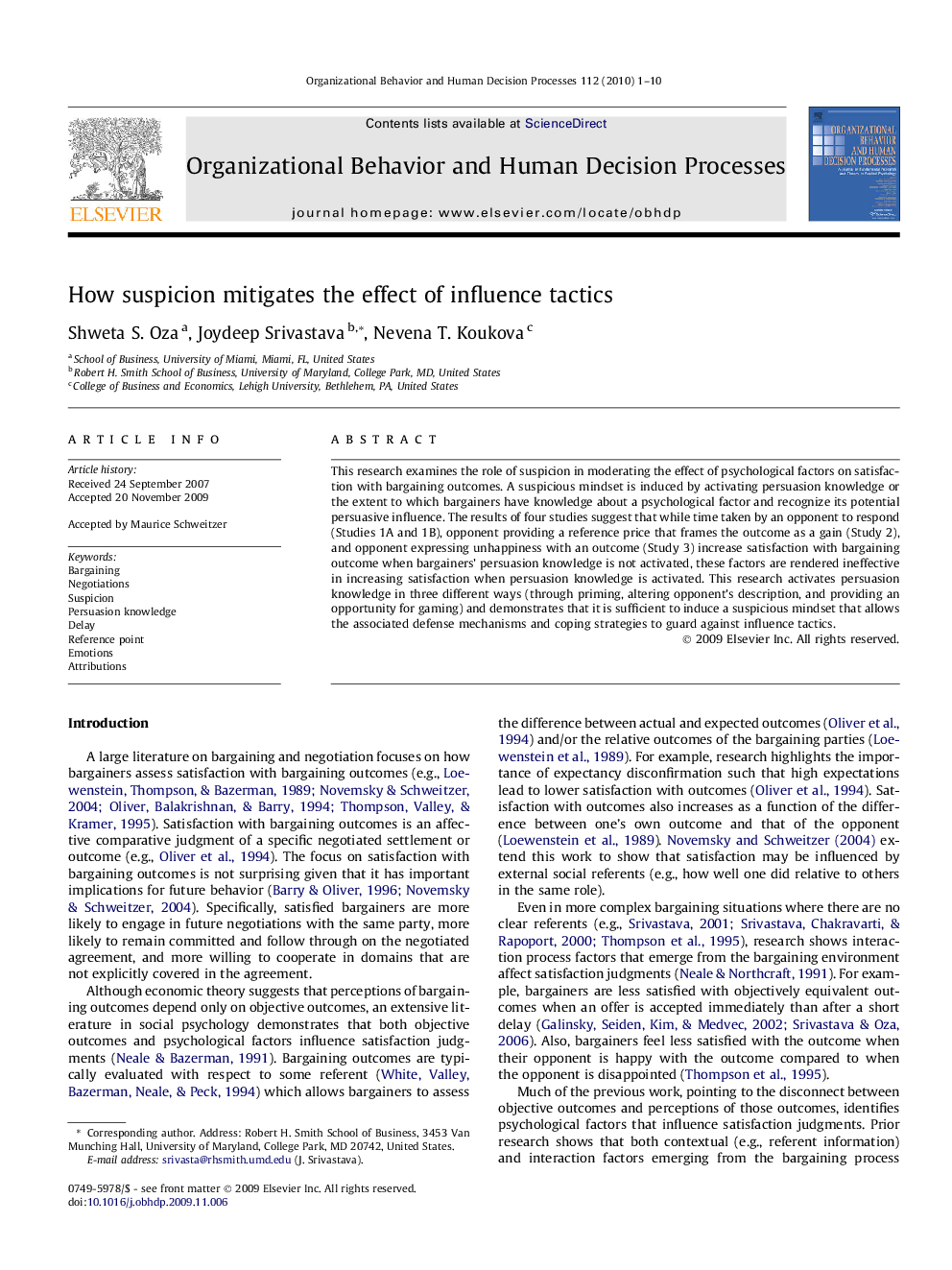| کد مقاله | کد نشریه | سال انتشار | مقاله انگلیسی | نسخه تمام متن |
|---|---|---|---|---|
| 888836 | 913575 | 2010 | 10 صفحه PDF | دانلود رایگان |

This research examines the role of suspicion in moderating the effect of psychological factors on satisfaction with bargaining outcomes. A suspicious mindset is induced by activating persuasion knowledge or the extent to which bargainers have knowledge about a psychological factor and recognize its potential persuasive influence. The results of four studies suggest that while time taken by an opponent to respond (Studies 1A and 1B), opponent providing a reference price that frames the outcome as a gain (Study 2), and opponent expressing unhappiness with an outcome (Study 3) increase satisfaction with bargaining outcome when bargainers’ persuasion knowledge is not activated, these factors are rendered ineffective in increasing satisfaction when persuasion knowledge is activated. This research activates persuasion knowledge in three different ways (through priming, altering opponent’s description, and providing an opportunity for gaming) and demonstrates that it is sufficient to induce a suspicious mindset that allows the associated defense mechanisms and coping strategies to guard against influence tactics.
Journal: Organizational Behavior and Human Decision Processes - Volume 112, Issue 1, May 2010, Pages 1–10